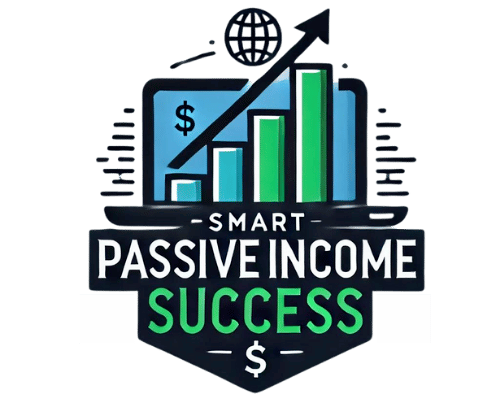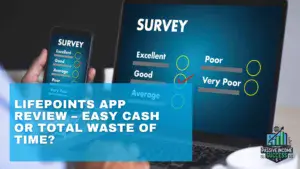Welcome to the world of affiliate marketing, a landscape teeming with opportunities and challenges alike. If you’ve ever found yourself pondering over the pros and cons of joining affiliate programs, you’re not alone. This digital marketing strategy has become a cornerstone for bloggers, influencers, and entrepreneurs seeking to monetize their online presence. But what exactly does it entail? And more importantly, is it the right fit for you?
Affiliate marketing, in essence, is a partnership where you earn a commission by promoting another company’s products or services. Sounds simple, right? Well, as with anything worth pursuing, it comes with its own set of complexities and considerations. There’s a lot to unpack from passive income potentials to the intricacies of choosing the right products and navigating affiliate networks.
In this blog post, we’ll dive deep into the intricacies of affiliate programs—shedding light on everything from the flexibility and independence they offer to the competitive hurdles you might face. Understanding these dynamics is crucial whether you’re a seasoned marketer or just starting out.
So, let’s embark on this journey together, exploring the multifaceted world of affiliate marketing. By weighing the pros and cons, you’ll be better equipped to decide whether this path aligns with your digital marketing goals. And who knows? This could be the beginning of a lucrative venture, or a valuable learning curve in your marketing career.
Table of Contents
Introduction to Affiliate Programs

Embarking on the journey of affiliate marketing opens up a world where content creation meets commerce most dynamically. Before we delve into the nuts and bolts of affiliate programs, it’s essential to grasp the broad landscape they inhabit within online marketing. This realm is not just about selling; it’s about forging meaningful connections between creators, businesses, and audiences.
Affiliate programs stand at the intersection of trust, influence, and innovation, offering a unique opportunity to monetize content while adding value to your audience’s online experience. Whether you’re a blogger, a social media influencer, or a digital entrepreneur, understanding affiliate programs is your first step towards tapping into this lucrative yet nuanced marketing strategy.
Let’s unfold the layers, starting with the basics.
What Are Affiliate Programs?

Affiliate programs, often known as affiliate marketing, serve as a bridge connecting businesses with potential customers through affiliates—individuals or companies who promote products or services in exchange for a commission on sales or leads. This symbiotic relationship is a cornerstone of online marketing, enabling companies to expand their reach while offering affiliates a chance to earn by leveraging their audience.
Exploring the Spectrum of Affiliate Programs

Not all affiliate programs are created equal. They range from pay-per-sale, the most common, where affiliates earn a commission when their promotion leads to a sale, to pay-per-click, where earnings are based on the traffic they direct to the advertiser’s site. There’s also pay-per-lead, rewarding affiliates for leads generated, such as completed forms or sign-ups.
Understanding these types helps affiliates choose the one that best fits their platform and audience.
Pay-Per-Sale (PPS) Programs
The Pay-Per-Sale model is the backbone of affiliate marketing, where you earn a commission for each sale made through your referral link. This model is highly attractive because it directly ties your earnings to your marketing efforts’ success. It’s perfect for affiliates who have engaged audiences and can effectively promote products or services that resonate with their followers.
Pay-Per-Click (PPC) Programs
With Pay-Per-Click programs, you’re paid based on the amount of traffic you direct to the advertiser’s website, regardless of whether those visits convert into sales. This model suits affiliates with high-traffic platforms who can generate significant clicks through well-placed links and compelling calls to action. It’s a great way to monetize your site’s traffic, especially if you’re still building your influence in terms of conversions.
Pay-Per-Lead (PPL) Programs
Pay-Per-Lead affiliate programs reward you for every lead you generate, such as sign-ups, subscriptions, or completed forms. This model is particularly beneficial if you’re able to attract an audience that’s interested in the advertiser’s offer but may not be ready to make a purchase immediately. It requires a nuanced understanding of your audience’s needs and how they align with the advertiser’s goals, making it ideal for those who excel in creating targeted content.
| Type of Affiliate Program | Affiliate Program Description | Ideal For |
|---|---|---|
| Pay-Per-Sale (PPS) | Affiliates earn a commission for each sale made through their referral link. | Affiliates with engaged audiences who can effectively promote products or services. |
| Pay-Per-Click (PPC) | Affiliates are paid based on the amount of traffic they direct to the advertiser’s site, regardless of conversion. | Affiliates with high-traffic sites who can generate significant clicks. |
| Pay-Per-Lead (PPL) | Affiliates earn for every lead generated (e.g., sign-ups, subscriptions, completed forms). | Affiliates skilled in attracting audiences interested in the advertiser’s offers but not immediately ready to purchase. |
The Importance of E-E-A-T in Affiliate Marketing

Expertise, Authoritativeness, Trustworthiness, and Experience (E-E-A-T) are crucial in affiliate marketing. This concept, while rooted in content creation, plays a pivotal role in affiliate marketing by ensuring that affiliates promote products or services in a way that adds genuine value to their audience. Incorporating E-E-A-T principles means selecting products you’re knowledgeable about, ensuring they’re from reputable sources, and transparently sharing your personal experience. This not only aids in maintaining your audience’s trust but can also enhance your credibility as an affiliate marketer.
The Benefits of Joining Affiliate Programs

Embarking on the affiliate marketing journey unveils a treasure trove of opportunities not just for earning but also for learning.
Here’s why countless marketers and content creators are gravitating towards affiliate programs:
Passive Income Potential

One of the most alluring aspects of affiliate marketing is the potential for generating passive income. By strategically placing affiliate links within your content, you can earn commissions around the clock — without the constant need to clock in.
This model allows your hard work today to pay dividends in the future, creating a revenue stream that sustains even when you’re not actively working.
No Need for Product Development or Inventory

Affiliate marketing liberates you from the complexities of product development and the hassles of inventory management. Your role is to connect your audience with products or services they need or love, not to create these offerings from scratch or worry about stock levels.
This significantly lowers the barrier to entry for individuals looking to venture into the business world online.
Flexibility and Independence

Choosing which products or brands to endorse puts you in the driver’s seat. This flexibility means you can align your promotions with your values, interests, and the preferences of your audience. It allows for authentic endorsements that resonate more deeply with your followers, enhancing trust and credibility.
Capitalizing on Existing Traffic and Audience Trust

If you’ve already built a platform or a following, affiliate marketing offers a way to monetize these existing assets. Your audience’s trust is gold in the digital realm, and by recommending products that genuinely benefit them, you can tap into this trust to generate income.
It’s a win-win where your audience discovers valuable products, and you earn a commission for facilitating the connection.
Opportunities for Learning and Growth

The affiliate marketing world is dynamic, offering endless opportunities for personal and professional growth. Whether it’s mastering SEO to improve your content’s reach or diving into the analytics behind your affiliate links, each step is a learning opportunity. This continuous development not only enhances your digital marketing skills but also keeps you adaptable and competitive in an ever-evolving digital landscape.
The Ultimate Affiliate Marketing Guide: Sign Up Now for Exclusive Tips and Strategies!
Understanding the Challenges of Affiliate Marketing

While affiliate marketing opens doors to numerous opportunities, it’s not without its hurdles. Recognizing and preparing for these challenges is key to navigating the affiliate marketing landscape successfully:
Consistent Traffic and Audience Engagement

A steady stream of traffic and high levels of engagement are the lifeblood of successful affiliate marketing. Without an attentive audience, even the most strategic affiliate links will fail to convert. This requires not only creating compelling content but also employing effective SEO strategies and social media engagement to ensure your platform remains visible and attractive to your target audience.
Navigating Payment Structures and Tracking Sales

Affiliate programs come with their own set of rules regarding payments and sales tracking. Some programs offer attractive commissions but may have stringent thresholds for payouts or complex tracking systems that can be difficult to manage. It’s essential to familiarize yourself with these structures and select programs that align with your payment preferences and technical capabilities.
Competitiveness in Popular Products or Niches

The allure of popular products or niches brings with it intense competition. Standing out in a saturated market requires creativity, a unique voice, and a strategy that differentiates you from the multitude of other affiliates promoting the same products.
This might involve focusing on sub-niches, leveraging untapped platforms, or employing innovative marketing techniques.
Risk of Damaged Reputation

Your reputation is your most valuable asset. Promoting poor-quality products or engaging in disingenuous marketing practices can quickly erode trust with your audience. It’s imperative to choose products and companies that you believe in and that align with your audience’s values and needs. Remember, short-term gains should not come at the cost of long-term trust.
Understanding Terms and Conditions

Affiliate programs come with terms and conditions that can be intricate and varied. These can include restrictions on how you can promote products, where you can share your affiliate links, and how you must disclose your affiliate relationship. A thorough understanding of these terms is crucial to ensure you’re in compliance and to protect yourself from potential legal issues.
| Benefits of Affiliate Marketing | Challenges of Affiliate Marketing |
|---|---|
| Passive income potential | Need for consistent traffic and audience engagement |
| No product development or inventory management required | Potential issues with payment structures and tracking sales |
| Flexibility and independence in product choice | Navigating the competitiveness of popular products or niches |
| Ability to capitalize on existing traffic and audience trust | Risk of damaged reputation from endorsing poor quality products |
| Opportunities for learning and growth in digital marketing skills | Understanding the terms and conditions of affiliate programs |
Making an Informed Decision:
Is Affiliate Marketing Right for You?

Deciding to embark on an affiliate marketing journey is no small feat. It requires a thoughtful evaluation of your goals, resources, and ethical considerations.
Let’s explore what it takes to make this decision:
Evaluating Personal Goals and Compatibility

Start by asking yourself what you hope to achieve with affiliate marketing. Are you looking for a way to supplement your income passively, or do you aspire to build a substantial business around it? Consider how affiliate marketing aligns with your interests and strengths.
Success in this field often hinges on genuine enthusiasm for the products you promote and the ability to create compelling content around them.
Assessing Commitment Required

Affiliate marketing demands a significant investment of time and resources, especially in the beginning. Building a platform that attracts and retains an audience takes diligent effort and patience.
Assess whether you’re ready to commit to content creation, audience engagement, and continuous learning in SEO and marketing trends. Your willingness to invest time and resources will directly impact your success.
Choosing Ethical Programs and Products

The integrity of the affiliate programs and products you choose to promote cannot be overstated. Aligning with ethical, high-quality programs not only protects your reputation but also fosters trust with your audience.
Research potential affiliate partners thoroughly to ensure their values match yours and that their products are beneficial and reliable.
Integrating with Your Broader Marketing and Content Strategy

Consider how affiliate marketing fits into your overall marketing and content strategy. It should complement your existing content and add value for your audience. Think about how you can weave affiliate promotions naturally into your content without compromising its quality or your authenticity. A strategic approach ensures that affiliate marketing enhances your brand rather than detracts from it.
Turn Your Passion into Profits
Frequently Asked Questions About Affiliate Marketing

Q1. What is affiliate marketing?
Affiliate marketing is a performance-based marketing strategy where a business rewards one or more affiliates for each visitor or customer brought by the affiliate’s own marketing efforts.
Q2. How do I start with affiliate marketing?
Starting with affiliate marketing typically involves choosing a niche, finding relevant affiliate programs or networks, creating content (such as a blog, social media posts, or a website), and incorporating affiliate links into your content.
Q3. Can affiliate marketing really generate passive income?
Yes, affiliate marketing can generate passive income over time. By creating evergreen content that ranks well in search engines and continues to attract visitors, you can earn commissions from your affiliate links long after the content is published. However, it requires consistent effort upfront to create and promote your content.
Q4. Do I need a website for affiliate marketing?
While having an affiliate website is highly beneficial for affiliate marketing, it’s not strictly necessary. You can also promote affiliate products through social media platforms, email marketing, or video platforms. However, a website gives you more control over your content and SEO, which can improve your affiliate marketing success.
Q5. How do I choose the right affiliate products to promote?
Choosing the right affiliate products involves considering your niche, understanding your audience’s needs and preferences, and selecting products that are relevant, high-quality, and align with your brand values. It’s also important to research the affiliate program’s reputation, commission structure, and support.
Q6. How long does it take to see results from affiliate marketing?
The time it takes to see results from affiliate marketing can vary widely depending on factors such as the niche, the effectiveness of your marketing strategy, and the amount of effort you put in. Some affiliates may see results within a few months, while others may take a year or more to generate significant income.
Q7. Is affiliate marketing still profitable in 2024?
Affiliate marketing continues to be a profitable venture for those who are willing to put in the effort to create quality content, build an audience, and stay updated with industry trends. The key to success is adapting to changes in the market and consumer behaviour and consistently providing value to your audience.
Conclusion: Striking a Balance for Success in Affiliate Programs
Navigating the affiliate marketing landscape is akin to walking a tightrope, where balancing the pros and cons is crucial for achieving success. From the allure of passive income and flexibility to the challenges of maintaining consistent engagement and navigating competitive niches, affiliate marketing is a journey of highs and lows. Embracing this path means committing to continuous learning and adaptation, and staying abreast of market trends to capitalise on emerging opportunities.
Central to thriving in this dynamic environment is the commitment to ethical marketing practices. Maintaining the trust of your audience is paramount, underscored by the principles of Expertise, Authoritativeness, Trustworthiness, and Experience (E-E-A-T). These core tenets ensure that your affiliate marketing efforts not only drive sales but also build a lasting relationship with your audience based on trust and value.
As we’ve explored the intricate balance required for success in affiliate programs, it’s clear that having a solid foundation in affiliate marketing principles is indispensable. For those looking to dive deeper and truly excel in this field, our #1 Recommended Training program offers comprehensive insights and strategies tailored to both beginners and experienced marketers. This program is designed to equip you with the knowledge and tools necessary to navigate the affiliate marketing world with confidence, enabling you to make informed decisions and optimize your efforts for maximum success.
Embarking on your affiliate marketing journey with a strong educational foundation can significantly enhance your chances of success. Whether you’re just starting out or looking to refine your strategies, our recommended training is an invaluable resource that can help you navigate the complexities of affiliate marketing with ease and integrity.







Affiliate marketing is indeed an effective way of earning passive income online. It does require commitment and effort, and with training and support, one can become a successful affiliate marketer. It is very helpful to see the benefits, but also the challenges, that one might face when entering the world of affiliate marketing.
Although I have joined several affiliate marketing networks, they are all pay-per-sale programs. I thought pay-per-click was for paid advertising, so it will be helpful to have a link where one can sign up to PPC affiliate programs. Thank you.
Hey!
Thank you so much for sharing your insights and experiences with affiliate marketing! You’re absolutely right; while earning through affiliate marketing offers a fantastic avenue for passive income, it indeed requires dedication, effort, and the right guidance to navigate its complexities successfully.
Regarding your point on Pay-Per-Click (PPC) affiliate programs, it’s an understandable confusion. PPC is often associated with paid advertising models like Google Ads. However, in the context of affiliate marketing, PPC programs allow affiliates to earn based on the traffic they direct to a merchant’s site, regardless of whether those visits convert into sales. These programs can be an excellent addition to your affiliate strategy, especially if you have a platform that generates high traffic.
While specific affiliate networks’ policies and offerings can vary, many do offer PPC opportunities alongside traditional pay-per-sale models. Some well-known platforms that offer or integrate PPC affiliate programs include ShareASale, CJ Affiliate, and Rakuten Advertising. I recommend visiting their websites and exploring their program directories for PPC options. Please ensure to read through each program’s terms and conditions to find the best fit for your marketing strategy and audience.
It’s also a good idea to keep exploring educational resources and training programs to stay updated with the latest trends and strategies in affiliate marketing. The landscape is ever-evolving, and staying informed is key to maximizing your earnings and success.
Thank you again for your comment, and best of luck with your affiliate marketing journey! If you’re looking for more tips or have any other questions, feel free to reach out.
Best Regards,
John
Hi, there are generally pros and cons to everything and affiliate networks are no exception. However if yo join a good one like WA then the pros far outweigh the cons. By a huge amount it’s not even comparable. You will save thousands of hours and dollars with it so just be sure to choose the right one
Hi there, and thank you for taking the time to share your thoughts and experiences!
You’ve touched on an incredibly important aspect of affiliate marketing—the significance of selecting the right affiliate network. Joining a reputable and supportive network like WA can indeed provide a wealth of resources, training, and support that can significantly tilt the balance toward the pros of affiliate marketing, as you’ve mentioned. It’s fantastic to hear about the positive impact it has had on your affiliate marketing journey!
Your emphasis on the importance of choice is spot-on. Every affiliate’s journey is unique, and what works wonderfully for one might not be the best fit for another. This underscores the value of researching and comparing different networks to find one that aligns with your goals, niche, and working style. It’s about finding a partner that not only offers a robust platform and tools but also aligns with your ethical standards and supports your growth as a marketer.
For those just starting or considering their options, your advice to carefully choose the right network is invaluable. Saving time and money while maximizing the benefits of affiliate marketing is indeed a goal for many. I would also encourage aspiring affiliates to look beyond just one option and consider a variety of programs to truly find the best fit for their needs.
Thanks again for your insightful comment. It’s always beneficial to hear real stories and recommendations from the community. Here’s to continued success in your affiliate marketing endeavours!
Best Regards,
John